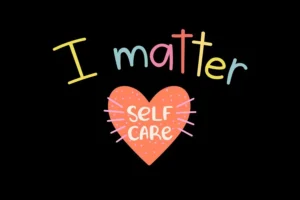When the word ‘relationship’ is mentioned, the first thing that comes to many people’s mind is a love relationship. But what if you can build the bond that is shared between two people without being in a romantic relationship? Go to the ‘just friends’ zone. This detailed article will take you to the core of what it truly means to be strictly platonic, bust some myths, and discover the ways strictly platonic relationship may transform your life.
As a result of this article, readers will find out how to set appropriate boundaries, how to build and sustain close nonsexual friendships, and, thus, improve their quality of life. Are you prepared to expand your vision of what it means to be in a strictly platonic relationship? Let’s Go!
Table of Contents
Exploring the Meaning of Strictly Platonic: A Comprehensive Guide

What Does Strictly Platonic Mean?
In its purest sense, a ‘friends only’ relationship implies affectionate understanding without flirting or sexual interest. Stemming from Plato’s theory, this term refers to love and friendship without physical attraction but instead includes intellectual appreciation, trust, loyalty and affection.
Thus, in the modern context, strictly platonic relationships have emerged as an essential part of social interactions, which enable people to have close connections without necessarily being intimate.
Plutonic Relationships: Dissecting the Misconception
The phrase ‘plutonic relationships’ actually confuses terms with ‘platonic relationships.’ The term ‘plutonic’ is derived from geological formations or the underworld in mythology. The correct word “platonic” is derived from Plato, where he expresses ideas on love in his work Symposium as something other than purely sexual.
Breaking Stereotypes: Understanding the Modern Dynamics of Strictly Platonic Relationships
In today’s society, strictly platonic friendship disrupt stereotypical norms that assert that all connections must be romantic or sexual in nature. These friendships include friends, acquaintances, business partners, family members, and other individuals with whom one shares shared interests, reliance, and admiration.
They provide people with an opportunity to be open about their weaknesses, seek emotional support, and help others in exchange without relationship challenges.
Platonic Bonds: Beyond Romance and Sexuality
Platonic Bonds may also entail emotional intimacy and friendship but are not characterized by physical contact and monogamous relationship. While romantic relationships may be based on passion and intimacy, platonic relationships are built on transparency, mutual respect, mutual trust, companionship, and mutual concern for one another.
The Evolution of ‘Strictly Platonic’: From Ancient Philosophy to Today’s Social Norms

Over the years, platonic love, as conceptualized by Plato, has undergone various changes based on the cultures of the society but has maintained the essence of love without the affection and companionship of the opposite sex. In modern society, strictly platonic friendship is crucial element of people’s support to provide them with emotional support in the face of globalization.
The Depths of Strictly Platonic Relationships: From Friendship to Love
They did not have a romantic connection but instead a unique friendship where two people share a strong connection without being in love. These may not be romantic connections but rather long-standing friendships, fellowship, and even professional interactions that are cordial and where people have affection for one another.
What is a Platonic Relationship? Detailed Insights
A friendship is an emotional connection and companionship without the possibility of a romantic connection. It gives people the opportunity to communicate personal experiences, goals, and struggles with a significant other who genuinely appreciates and accepts them.
Another benefit of platonic relationships is that people can find friendship and emotional intimacy without necessarily limiting themselves to romantic attachments.
Related Reading: Explore Platonic Relationships Today
Platonic Love vs. Platonic Friendship: Key Differences
Strictly platonic friendship recognizes fondness and admiration of a person’s personality and character with no sexual implications. It values the person and what they bring into one’s life, the essence of who they are. On the other hand, platonic friendship is all about nurturing a friendship based on support, shared interests, and affection without being sexually attracted to the person.
Defining Elements of Strictly Platonic Connections
Establishing the concept of strictly platonic relationship means studying several aspects that define and create these types of relationships.
Definition of Platonic Love and Its Role in Relationships
There is platonic love, which is an emotional and intellectual relationship between two people that does not involve romance or sex. It focuses on companionship, courtesy, and understanding as opposed to attraction and lust. Even now, this notion is still relevant since the significant goal remains to find like-minded individuals and support one another during the processes of growth and self-improvement.

Strictly Platonic Friends: Boundaries and Expectations
In friendships free from romantic intentions, the personal boundaries are significant for defining and honoring the friendship. These boundaries help determine the nature of the relationship since the individuals involved comprehend the emotional structure of the relationship.
For example, individuals may hang out with their friends, discuss events in their lives, and be there for each other emotionally without having to have sex with one another. When expectations are not met, they understand that no harm is meant and it does not compromise the friendship.
Complexities of Platonic Intimacy
As for platonic intimacy, it is possible to be emotionally and physically affectionate with one’s friends. It can include discussion on complex subjects, understanding, and confidence that creates a safe space.
However, this familiarity has to be done in a certain measure of personal space and understanding of each other’s personal boundaries. If these concerns are understood, friends can achieve a balance of intimacy and interpersonal boundaries.
Establishing and Maintaining Boundaries

Effective communication between the parties involved should be used to set limits in strictly platonic relationships. Objectives, expectations, convictions, and even fears should be voiced during the initial stages of the friendship.
This proactive approach avoids conflict and ensures that both partners are valued within the friendship dynamics. Biweekly check-ins could also be useful for tweaking rules as the relationship progresses forward.
Psychological Benefits of Nonromantic Relationships
Close, nonromantic relationships provide many psychological advantages, including decreasing loneliness, improving perceptions of belongingness, and gaining comfort in times of emotional difficulty.
Helper friendships are beneficial for well-being because they support social integration and create feelings of belongingness. They also enable people to discover various aspects of their character and hobbies in a protected manner.
Related Reading: 14 Signs He’s Obsessed with You in a Good Way – True Love!
Maintaining Strictly Platonic Relationships: A Guide to Healthy Boundaries

How to Define a Platonic Relationship in Modern Times
It refers to a close, intimate friendship between two people without any sexual or romantic engagement. Unlike in the past, such relationships are more diverse and not strictly defined by the traditional male/female dynamics.
They can occur with or without people of any gender, and they must have an understanding of each other’s needs and personal boundaries. Contemporary platonic relationships entail companionship, honesty friendship, and affection but without sexual involvement.
Strictly Platonic: Ensuring Clarity and Understanding in Nonromantic Bonds
Communication is needed. to maintain a purely non-romantic friendship. It is crucial for both parties to clearly state what they want and what they will not allow. This means talking about what actions are acceptable and which may lead to a romantic relationship. These feelings can be quickly reestablished with just a simple check-in so both friends feel secure and respected. This clarity assists in avoiding confusion and does not compromise the nature of the friendship.
Making Platonic Relationships Work: Practical Tips and Strategies

Nonromantic relationships, also known as platonic relationships, are crucial in our lives. They help improve well-being and contribute to personal development. However, like any other relationship, they need attention, respect for partner and dedication. Below are some valuable recommendations and measures that can be taken to develop and sustain healthy and supportive nonromantic friendships.
Building a Supportive Platonic Network: Steps to Cultivate Nonromantic Ties
- 1. Be Open and Approachable: Begin by being friendly and willing to make new friends. Learn to smile at people, look at them directly, and show concern for what they have to say.
- 2. Initiate Conversations: This means that you have to make the first move and should immediately be approached. Engage others in talking about popular culture or recent happenings. Just being polite and inquiring about their lives can go a long way.
- 3. Show Empathy and Understanding: Take turns speaking and be attentive. Emphasize that their feelings and experiences are real. This creates trust and strengthens the bond.
- 4. Stay Consistent and Reliable: Be the person they turn to for help and comfort. Deliver on promises and show up when you agree. Reliability is crucial in any partnership.
- 5. Share Experiences: Spend quality time together doing things that you both like to do. Whether it is a pastime, a game, or merely a few hours spent together, joint activities form strong bonds.
- 6. Communicate Openly: Share your feelings and emotions with friends and make sure friends do the same. The benefits of extraverted communication include conflict resolution and the absence of misunderstandings.
- 7. Be Supportive: Be there for your partner during difficult times. Listen and encourage. As the saying goes, the place matters too.
- 8. Respect Boundaries: Recognize one another’s boundaries and territory. Everyone has their little bubble, and it feels good to respect that.
Platonic Relationships and Mental Health: How Nonromantic Friendships Can Boost Well-being

Here’s how they can boost your mental health:
- 1. Provide Emotional Support: When a person is stressed, they can always count on friends to console them and be there for them. Speaking to a friend can be beneficial in removing the load on your heart and feeling that someone is listening to you.
- 2. Reduce Stress: Laughter is very therapeutic, and it is always nice to hang out with friends. Humor, games, jokes, and other forms of fun can dramatically reduce stress.
- 3. Enhance Self-esteem: Healthy, socially acceptable friendships improve your morale and self-esteem. When you realize you have friends who appreciate you, your self-esteem is boosted.
- 4. Encourage Healthy Behaviors: Peer pressure can be constructive and push people towards leading healthy lifestyles such as exercising, proper dieting, and not smoking.
- 5. Combat Loneliness: Being friends with people is much better than being lonely and being all by yourself. Interacting with people on a daily basis helps one to feel that they are not alone in society.
- 6. Promote Personal Growth: Friends can push one to change for the better. They offer loyalty, fresh ideas, suggestions, and comments that can help an individual grow.
- 7. Offer a Sense of Belonging: A group of friends means that one is not alone and that there are people he or she can turn to in times of trouble. Such a feeling of connectedness is important for mental well-being.
Conclusion
Nowadays, friendly, strictly nonsexual relationships remain an important and meaningful part of our lives. They are characterized as close bonds that do not imply love or sexual attraction. Understanding this helps clarify misconceptions and provide insight into the depth that can be found in friendships. The idea of strictly platonic relationships has been around since the ancient philosophers and still has a place in contemporary society.
These relationships are not just platonic but are more than friendships. They serve as a good platform for building affectionate relationships without sexual overtones. It became apparent that while love and friendship can never be intimate, both have unique advantages and disadvantages. Thus, platonic intimacy proves to be an alternative to romantic relationships, which signifies that a code of conduct and clear expectations should be established to ensure that the connection remains healthy and positive.
Pro-Tip From Basics of Psychology
Also, always ensure that you discuss boundaries and expectations with your other platonic friends. This constant communication is helpful in avoiding conflict and developing the relationship. Honest communication helps maintain respect for one another and leads to more profound and less vulnerable levels of friendship.













